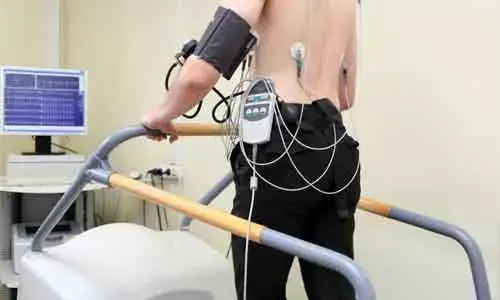- Home
- Medical news & Guidelines
- Anesthesiology
- Cardiology and CTVS
- Critical Care
- Dentistry
- Dermatology
- Diabetes and Endocrinology
- ENT
- Gastroenterology
- Medicine
- Nephrology
- Neurology
- Obstretics-Gynaecology
- Oncology
- Ophthalmology
- Orthopaedics
- Pediatrics-Neonatology
- Psychiatry
- Pulmonology
- Radiology
- Surgery
- Urology
- Laboratory Medicine
- Diet
- Nursing
- Paramedical
- Physiotherapy
- Health news
- Fact Check
- Bone Health Fact Check
- Brain Health Fact Check
- Cancer Related Fact Check
- Child Care Fact Check
- Dental and oral health fact check
- Diabetes and metabolic health fact check
- Diet and Nutrition Fact Check
- Eye and ENT Care Fact Check
- Fitness fact check
- Gut health fact check
- Heart health fact check
- Kidney health fact check
- Medical education fact check
- Men's health fact check
- Respiratory fact check
- Skin and hair care fact check
- Vaccine and Immunization fact check
- Women's health fact check
- AYUSH
- State News
- Andaman and Nicobar Islands
- Andhra Pradesh
- Arunachal Pradesh
- Assam
- Bihar
- Chandigarh
- Chattisgarh
- Dadra and Nagar Haveli
- Daman and Diu
- Delhi
- Goa
- Gujarat
- Haryana
- Himachal Pradesh
- Jammu & Kashmir
- Jharkhand
- Karnataka
- Kerala
- Ladakh
- Lakshadweep
- Madhya Pradesh
- Maharashtra
- Manipur
- Meghalaya
- Mizoram
- Nagaland
- Odisha
- Puducherry
- Punjab
- Rajasthan
- Sikkim
- Tamil Nadu
- Telangana
- Tripura
- Uttar Pradesh
- Uttrakhand
- West Bengal
- Medical Education
- Industry
Patients with positive ECG, negative echocardiography at higher risk for heart disease: JAMA

USA: Normal stress echocardiography but abnormal exercise electrocardiography may help identify patients at a slightly increased risk for adverse cardiac events, finds a recent study published in the journal JAMA Internal Medicine.
Patients with abnormal (positive) exercise electrocardiography, but normal stress echocardiography (+ECG/−Echo) are commonly encountered in clinical practice. However, the prognostic significance of this discordant result is unclear.
In this cohort study including 15 077 patients undergoing exercise stress echocardiography for suspected coronary artery disease, Melissa A. Daubert, Department of Medicine, Division of Cardiology, Duke University Medical Center, Durham, North Carolina, and colleagues determined whether patients with +ECG/−Echo have a higher rate of adverse clinical events and a poorer prognosis than patients with negative exercise ECG and normal stress Echo imaging (−ECG/−Echo).
Researchers analyzed data from 15,077 patients (mean age, 52 years; 41% men) who were free from CAD who underwent exercise stress echocardiography between January 2000 and February 2014. Patients were categorized as having −ECG/−Echo, +ECG/−Echo, or +Echo (−ECG/+Echo and +ECG/+Echo).
The primary outcome was a composite endpoint of death, myocardial infarction, hospitalization for unstable angina, and coronary revascularization. Secondary outcomes included individual adverse events and downstream testing.
Key findings of the study include:
- 12 893 patients (85.5%) had −ECG/−Echo, 1286 patients (8.5%) had +ECG/−Echo, and 898 patients (6.0%) had +Echo.
- Through a median follow-up of 7.3 (interquartile range, 4.4-10.0) years, the composite end point occurred in 794 patients with −ECG/−Echo (8.5%), 142 patients with +ECG/−Echo (14.6%), and 297 patients with +Echo (37.4%).
- Death occurred in 425 patients with −ECG/−Echo (4.8%), 50 patients with +ECG/−Echo (5.9%), and 70 patients with +Echo (11.2%).
- Myocardial infarction occurred in 195 patients with −ECG/−Echo (2.2%), 31 patients with +ECG/−Echo (3.6%), and 59 patients with +Echo (8.7%).
- The addition of stress ECG findings to clinical and exercise data yielded incremental prognostic value.
- Patients with −ECG/−Echo imaging results had the least downstream testing (2.3%), followed by +ECG/−Echo (12.8%), and +Echo (33.6%).
According to the authors, these findings have ramifications for the dissemination of clinical results. By recognizing that +ECG/–Echo patients are at increased cardiac risk, there is an opportunity to intervene and potentially decrease adverse outcomes in this population.
"Further study is needed to determine whether these patients will benefit from intensification of medical management," concluded the authors.
The study, "Implications of Abnormal Exercise Electrocardiography With Normal Stress Echocardiography," is published in the journal JAMA Internal Medicine.
Dr Kamal Kant Kohli-MBBS, DTCD- a chest specialist with more than 30 years of practice and a flair for writing clinical articles, Dr Kamal Kant Kohli joined Medical Dialogues as a Chief Editor of Medical News. Besides writing articles, as an editor, he proofreads and verifies all the medical content published on Medical Dialogues including those coming from journals, studies,medical conferences,guidelines etc. Email: drkohli@medicaldialogues.in. Contact no. 011-43720751


